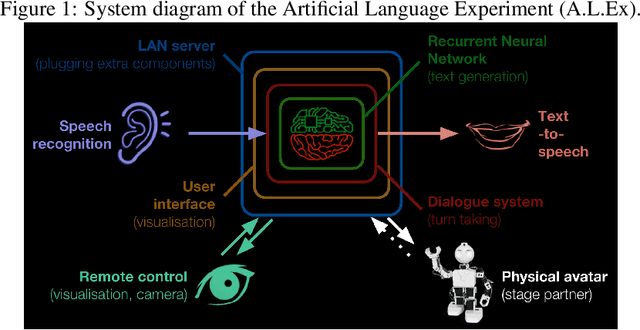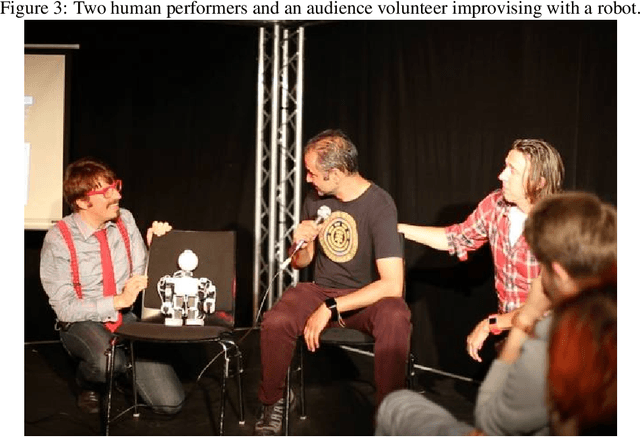Kory Wallace Mathewson
The Theater Stage as Laboratory: Review of Real-Time Comedy LLM Systems for Live Performance
Jan 14, 2025Abstract:In this position paper, we review the eclectic recent history of academic and artistic works involving computational systems for humor generation, and focus specifically on live performance. We make the case that AI comedy should be evaluated in live conditions, in front of audiences sharing either physical or online spaces, and under real-time constraints. We further suggest that improvised comedy is therefore the perfect substrate for deploying and assessing computational humor systems. Using examples of successful AI-infused shows, we demonstrate that live performance raises three sets of challenges for computational humor generation: 1) questions around robotic embodiment, anthropomorphism and competition between humans and machines, 2) questions around comedic timing and the nature of audience interaction, and 3) questions about the human interpretation of seemingly absurd AI-generated humor. We argue that these questions impact the choice of methodologies for evaluating computational humor, as any such method needs to work around the constraints of live audiences and performance spaces. These interrogations also highlight different types of collaborative relationship of human comedians towards AI tools.
Improvised Comedy as a Turing Test
Dec 02, 2017


Abstract:The best improvisational theatre actors can make any scene partner, of any skill level or ability, appear talented and proficient in the art form, and thus "make them shine". To challenge this improvisational paradigm, we built an artificial intelligence (AI) trained to perform live shows alongside human actors for human audiences. Over the course of 30 performances to a combined audience of almost 3000 people, we have refined theatrical games which involve combinations of human and (at times, adversarial) AI actors. We have developed specific scene structures to include audience participants in interesting ways. Finally, we developed a complete show structure that submitted the audience to a Turing test and observed their suspension of disbelief, which we believe is key for human/non-human theatre co-creation.
 Add to Chrome
Add to Chrome Add to Firefox
Add to Firefox Add to Edge
Add to Edge